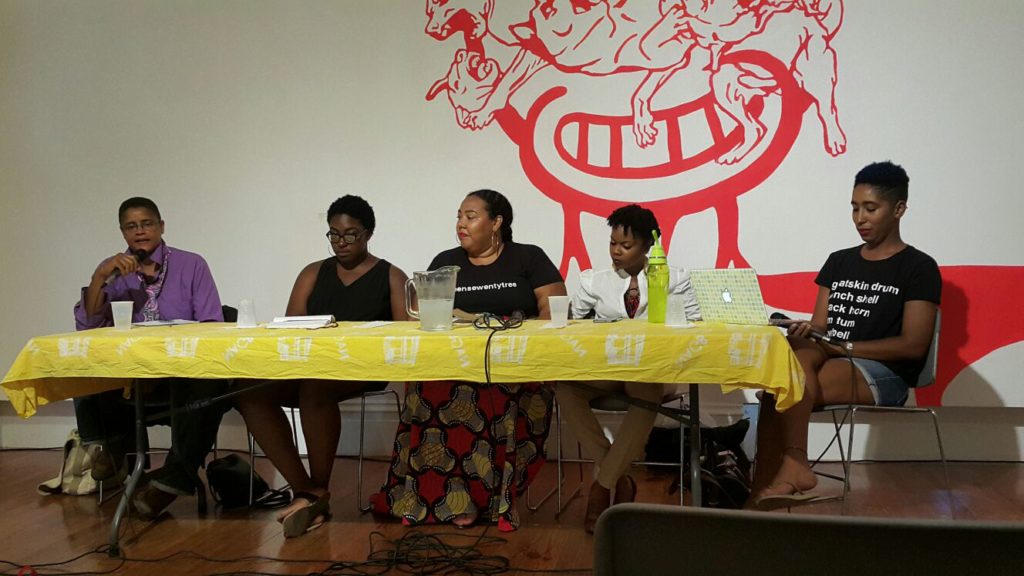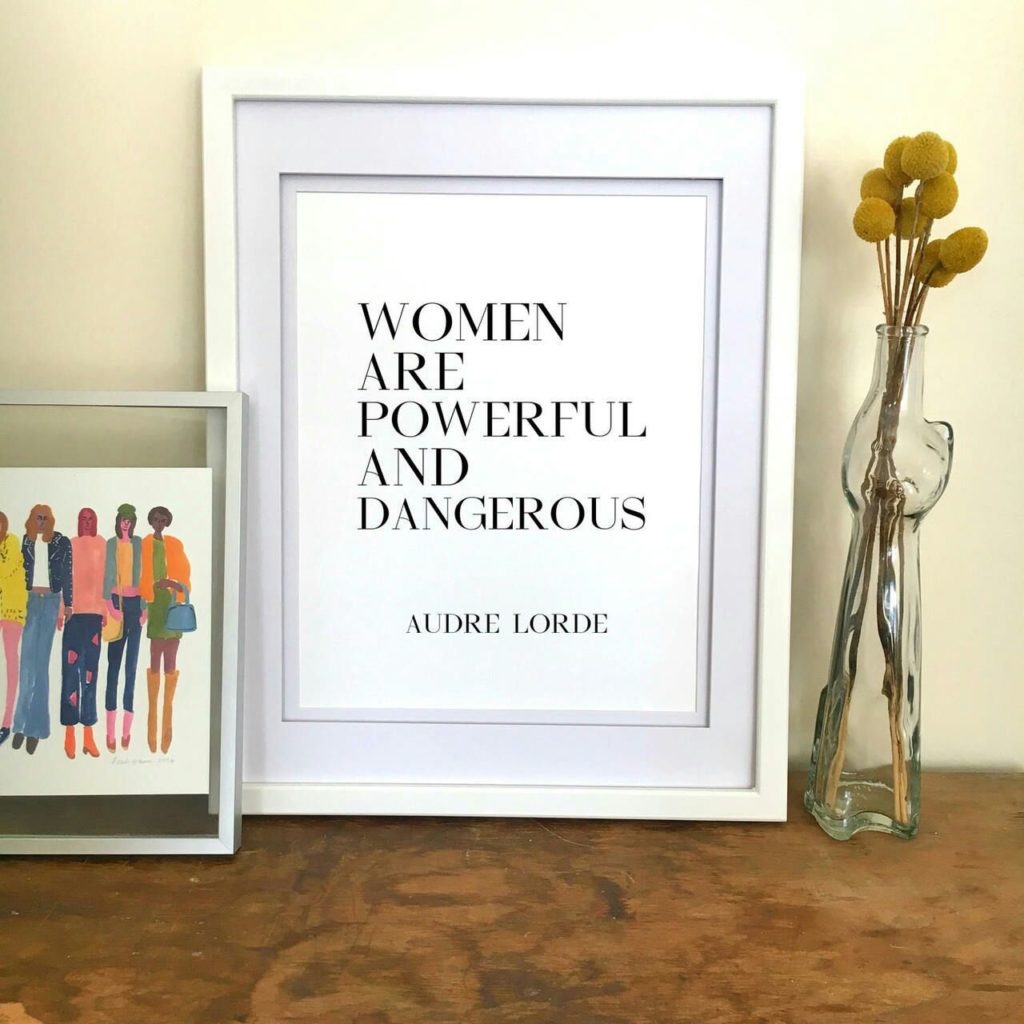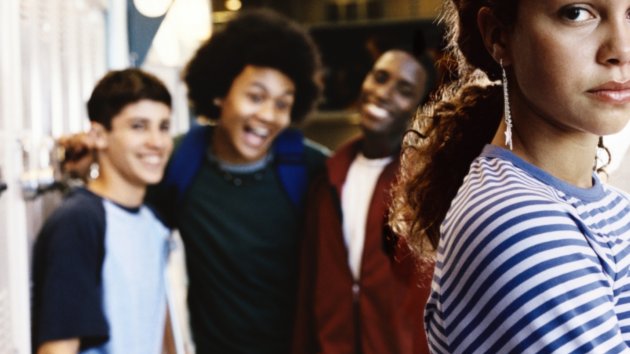What is sexuality? What are the means by which it can be defined within the Bahamian context? How does it intertwine with orientation? How is the bridge gapped between it and harassment? How does it exist within the realms of ownership? Who owns the Bahamian woman’s sexuality and body? – all of these questions and more were sought to be discussed by a panel of very different but dynamic women at this month’s Women’s Wednesdays initiative.
Erin Greene, human rights activist and food security enthusiast, thought to answer the question of what defines sexuality by likening it to the complexities of what it means to be a woman. She describes this force as energetic, in that we are all sexual beings who have come from sexual beings and that same energy is reciprocated based on attraction.
Jodi Minnis, inter-disciplinarian artist, agreed that this force is energetic and natural but it is also powerful. So powerful that some may not be able to control themselves because they “like what they see”. And so this idea of sexuality turns into the question of “whose is it to claim?”
Tamika Galanis, documentarian and multimedia artist, believes that sexuality isn’t anyone else’s to claim but us. She expresses that nobody has the right to police another’s sexuality, orientation or sexual habits – that the Bahamian woman owns what is rightfully hers. “My sexuality is my business.”
Though it may be our own businesses, Jodi says the reality surrounding conversations of sexuality are suppressed within the Bahamian society because of cultural formalities and “protocol”.
Something Princess Pratt, storyteller, writer, artist and drummer, can agree on. She calls out the irony in the conversation of sexuality being suppressed juxtaposed to the hyper-sexualization of the Bahamian society. She says that when we ignore these healthy conversations especially among our youth, we fail to prepare them for the truth about adulthood and make them to feel ashamed of these feelings and thoughts that occur naturally.
These thoughts and feelings awaken an urge in another to want to pursue and if the one being pursued declines the invitation and the one pursuing persists, it turns into harassment or even worse, abuse. Three out of four women on the panel shared how they were sexually abused in their childhoods and even admitted to it playing a huge role in the making of their womanhood.
Princess talks about how her experience made her “sexually promiscuous from an early age” but she has turned it around through healing, work and love to transform her into what she calls a sexually liberated woman.
Tamika reveals that her experience caused her to do a bout of self-work in that she spent most of her 20s and 30s alone, but mending. She says that this in turn has caused her to love herself more for who she is as a “bigger girl” and what she possesses.
“These hands, these feet, these big breasts, I got from them [the women in her family]. So how can I say I love those women and not love myself?”
Erin admits that some may say her experience has led her to what she identifies as and whom she is attracted to but she doesn’t necessarily buy the notion. However, the conversation of sexuality intertwined with harassment from her perspective has always been interesting especially as one that advocates for LGBT+ rights specifically.
“You would think that people, that men would be hitting you up to ask if “bey, you still gay?” or “you still fooling ‘round with women?” but no, I get threats. Sometimes death threats for what I do.”

When the topics of harassment, sexuality, bodily autonomy, ownership and the Bahamian woman are all discussed under the same umbrella from the viewpoints of very different women, it creates a chamber of diversity that allows for new ideas to be introduced and critical thought to occur. This was the aim of Alicia Wallace, director of Equality Bahamas (a community organization focused on public education and empowerment of women) and organizer for the Women’s Wednesdays’ initiative in collaboration with the National Art Gallery of The Bahamas.
“I thought it was a timely topic especially given the situation with Blac Chyna and Rob Kardashian and the conversation that I saw around it, particularly coming from Bahamian and Caribbean people – I found it quite disturbing and I wanted to intervene in some kind of way.
“So I thought about some people who have talked about sexuality, about sexual freedom and liberation of women and intersectional feminism and I wanted to hear from them personally, but I also wanted to bring their voices to the general public, and I’m very intentional about mixing complexions and body types and backgrounds and areas of work, levels of experience, age, all of those kinds of things because they bring so many different perspectives and so many different lived experiences.”
Alicia’s passion for women’s rights drove her to start the Wednesday initiative to educate the masses, but in particular the female sector, about these concerns.
Given that social media has become apart of if not the tool by which pop culture is seen and heard, she wants to ensure that these spaces are kept safe for everyone to enjoy since we share so much of our lives on it.
She says that conversations like this always drive her to think about the significant role of the moderator.
“It makes me think a lot about the role of the moderator not just in this space and not just me personally, but the role of the moderator in any space as a host, as a person whose Facebook page or profile a conversation is happening on and how important it is to intervene and to allow other voices to be heard, and to help to pull out information and ideas from people who might not think to share it.”
Alicia says the game plan for future panel discussions is to continue to bring new names and faces to the platform to share in thought and conversation on issues that may be seemingly taboo but should be discussed. She says she wants to break the hierarchy that exists of following formalities when it comes to panel discussions of presentations to audiences from “experts”.
“Eventually we’ll all come together and not have to have anyone on a panel but it’s a room of people who are ready and prepared to have a conversation more broadly.”
Want to keep up with the conversation? Follow Equality Bahamas’ Facebook page @equality242 and attend the next Women’s Wednesdays’ panel discussion at the National Art Gallery of The Bahamas on August 9th.
Kevanté is a creative writer, digital marketer, content curator and self-love enthusiast who found her passion for writing, public relations and social media coordination during her time at the University of The Bahamas. She has a special love for the creative arts, civil, queer and woman's rights and wishes to expose these truths through her writing. Follow her on social @alexia_chatelle across all platforms and be sure to keep up with her latest posts within the E-Life (242) collective.

